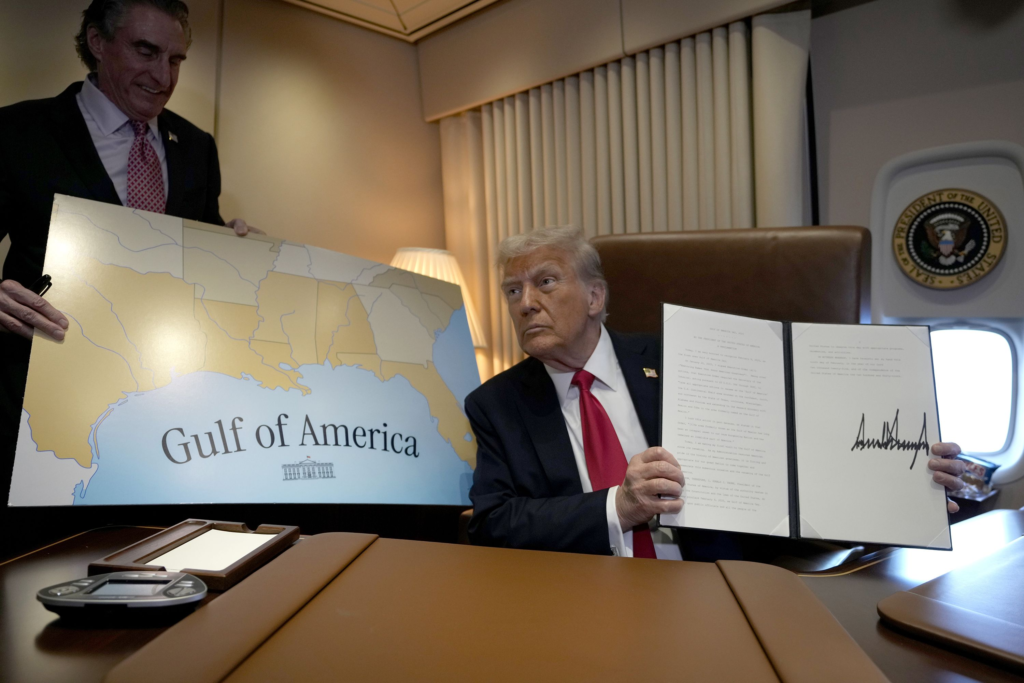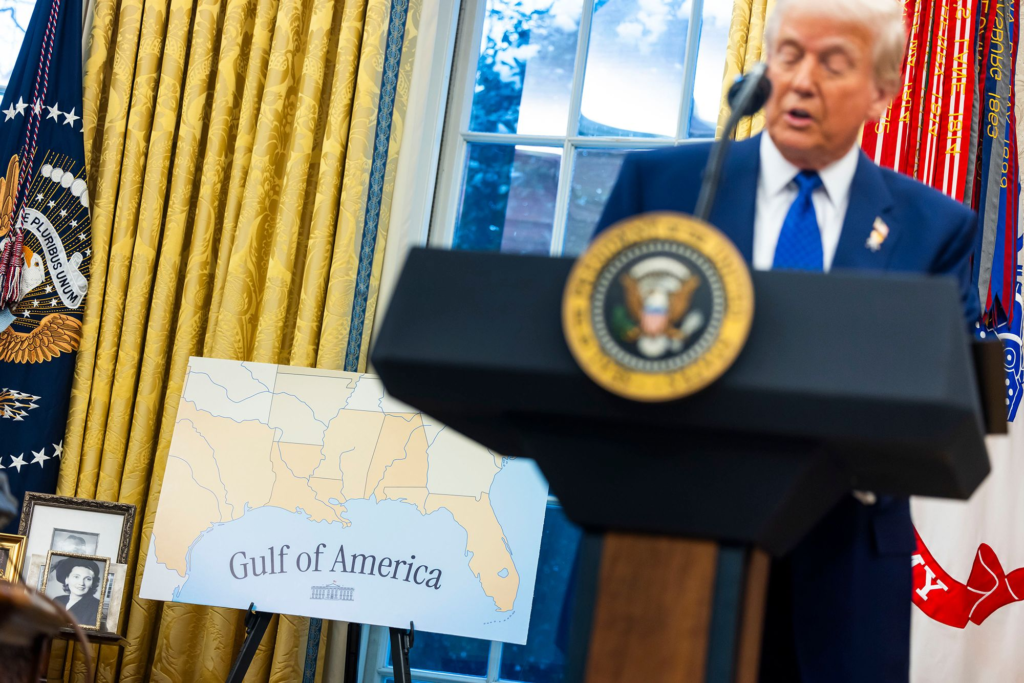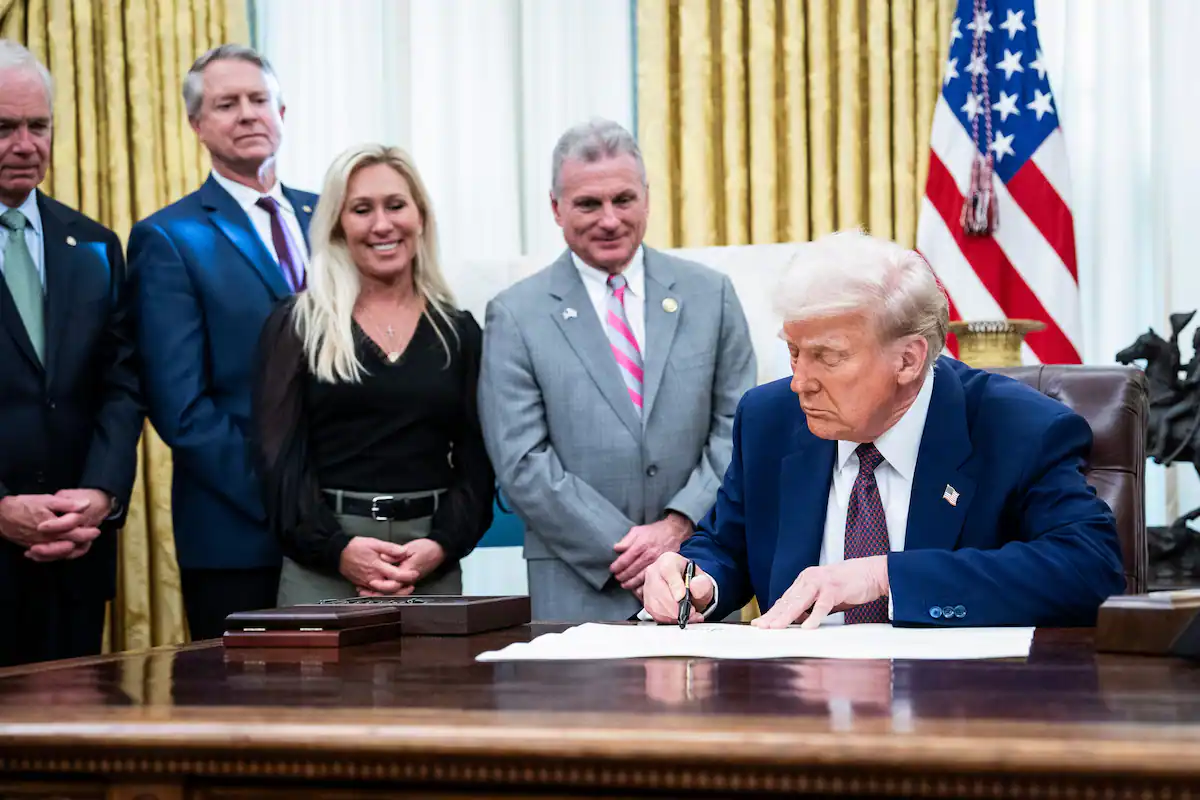AP journalists banned from White House have sparked a significant debate over press freedom and the role of media in shaping public discourse. This ban comes in response to the Associated Press’s refusal to adopt the Trump administration’s preferred term, “Gulf of America,” for the body of water historically known as the Gulf of Mexico.
The dispute has escalated over the past four days, culminating in the indefinite barring of AP reporters from the Oval Office and Air Force One. This move has raised concerns about the limitations placed on journalistic access and the broader implications for freedom of speech in the United States.
The Naming Controversy and the White House’s Stance
The heart of the controversy lies in the renaming effort initiated by the Trump administration. The Gulf of Mexico, a well-known and historically recognized body of water, was suddenly designated as the “Gulf of America” by the White House.
This unilateral decision was met with immediate resistance from various media organizations, with the Associated Press (AP) leading the charge in refusing to adopt the new term. The AP cited its global audience and commitment to journalistic integrity as reasons for maintaining the original name.
Deputy Chief of Staff Taylor Budowich defended the White House’s decision, emphasizing that the administration viewed the AP’s refusal as an act of defiance.
Budowich took to social media platform X to express his discontent, stating, “While their right to irresponsible and dishonest reporting is protected by the First Amendment, it does not ensure their privilege of unfettered access to limited spaces, like the Oval Office and Air Force One.”
Read : Woman Seen Replacing US Flag With Mexico Flag at Hart Park in California
He further argued that the White House’s move would allow other journalists who had been previously denied access to step in and cover presidential events.
Read : Israeli Embassy Set on Fire as Protest Intensity in Mexico City
The administration’s actions, however, have drawn criticism from various quarters, including free speech advocates and journalists who see this as an effort to stifle independent reporting.
The decision to bar AP reporters from such critical spaces raises questions about how press freedom is being shaped by political considerations and whether the executive branch is attempting to influence media narratives through punitive measures.
Media Responses and the Broader Implications
The media landscape has responded in various ways to the naming dispute. While the AP has maintained its position by continuing to use “Gulf of Mexico,” other news organizations have taken different approaches.
The New York Times and the Washington Post have predominantly used the original name, reflecting their editorial commitment to established geographic terminology. On the other hand, Fox News has largely adopted “Gulf of America,” aligning with the administration’s preferred terminology.
This divergence in media responses highlights the increasing polarization within American journalism. It also underscores the challenges faced by news organizations in maintaining independence while navigating political pressures.

The AP’s stylebook has taken a middle ground by recommending the use of both terms within the United States, a compromise that aims to balance factual accuracy with the reality of the political discourse. AP spokeswoman Lauren Easton reiterated the agency’s commitment to press freedom, stating, “Freedom of speech is a pillar of American democracy and a core value of the American people.
The White House has said it supports these principles. The actions taken to restrict AP’s coverage of presidential events because of how we refer to a geographic location chip away at this important right enshrined in the US Constitution for all Americans.”
This situation raises broader concerns about government influence over media reporting. The ability of a sitting administration to control access to critical spaces based on editorial choices sets a concerning precedent. If such actions become normalized, it could lead to further constraints on journalistic freedom, ultimately impacting the public’s access to unbiased information.
Press Freedom in the Age of Political Polarization
The barring of AP journalists from the White House and Air Force One is emblematic of the increasing friction between the media and political authorities in the modern era.
Over the past decade, tensions between governments and the press have escalated, with accusations of “fake news” and “biased reporting” becoming common rhetoric used to discredit unfavorable coverage.
The Trump administration’s decision to push for a rebranding of the Gulf of Mexico and penalize the AP for non-compliance illustrates a growing trend of political interference in journalistic practices.
By limiting access to crucial spaces, the White House is effectively curtailing the ability of reporters to gather firsthand information, which in turn affects the quality and breadth of news coverage available to the public.
This development also places other media organizations in a difficult position. While some may choose to comply with governmental directives to maintain access, others may find themselves forced to take a stand at the risk of losing privileges. The White House’s actions could create a chilling effect, where media outlets feel pressured to align their reporting with political preferences to avoid restrictions.

Historically, press freedom has been a cornerstone of American democracy, allowing journalists to hold those in power accountable. However, the ongoing disputes over naming conventions, access restrictions, and political bias accusations indicate that this foundational principle is under threat.
Organizations like the AP have taken a firm stance in resisting external pressures, but the question remains whether they can sustain this position in the face of increasing governmental pushback.
As this situation unfolds, it is imperative for journalists, media institutions, and the public to engage in discussions about the future of press freedom.
The banning of AP journalists from the White House may be a single event, but its ramifications extend far beyond this specific dispute. It serves as a test case for how much control the government can exert over media narratives and whether the principles of a free press can withstand political pressures in an era of heightened polarization.
Ultimately, the dispute over the Gulf of Mexico’s name is more than a simple disagreement over terminology. It is a battle over the fundamental role of journalism in a democratic society.
The decisions made now will shape the landscape of media freedom in the years to come, making it all the more critical for journalists and advocates of free speech to remain vigilant and steadfast in their commitment to truth and transparency.

